Are You Looking For a Postpartum Physical Therapist In Greer, South Carolina?
Conveniently located off Interstate 85 in South Carolina
980 Batesville Rd Suite C Greer, SC 29651
Free parking available
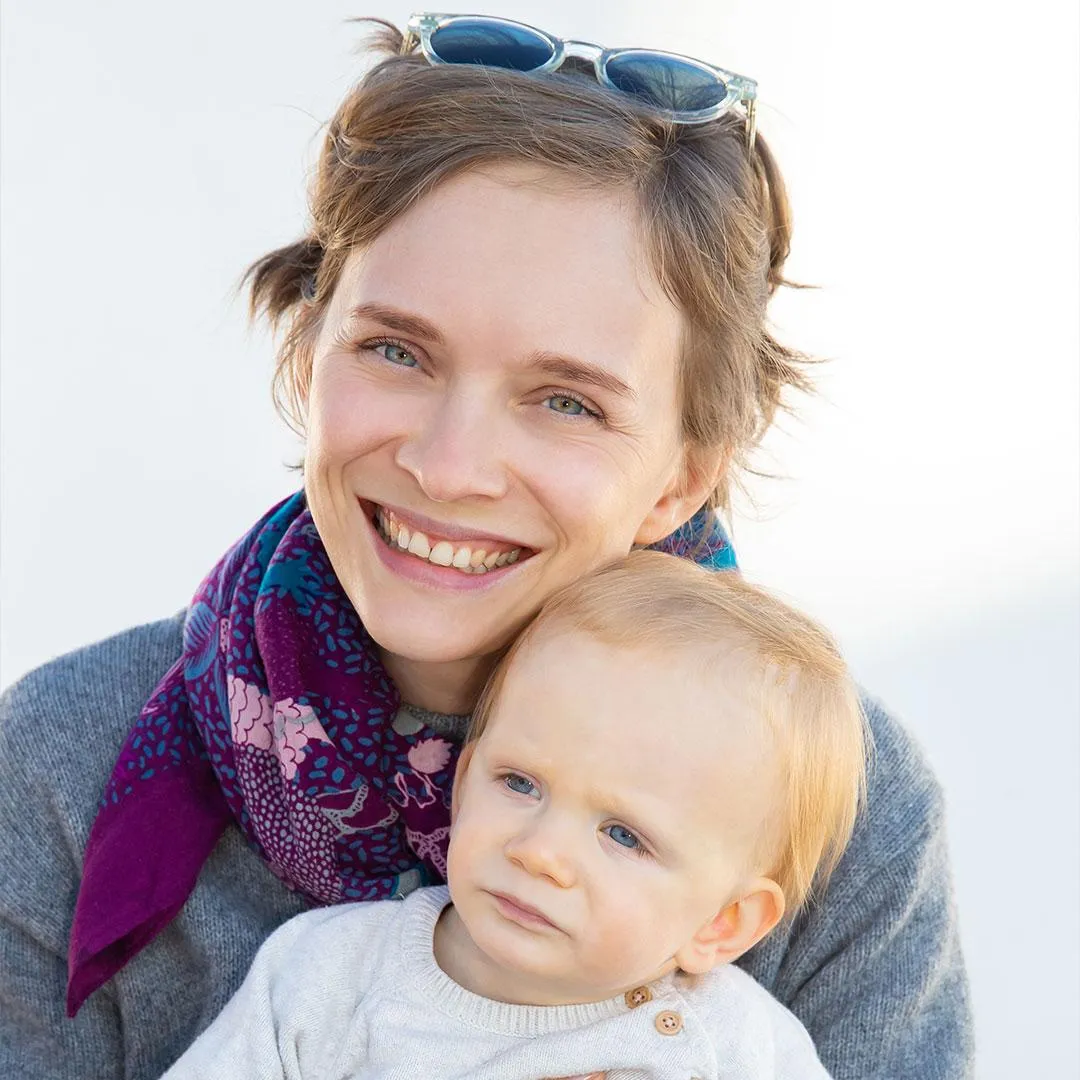
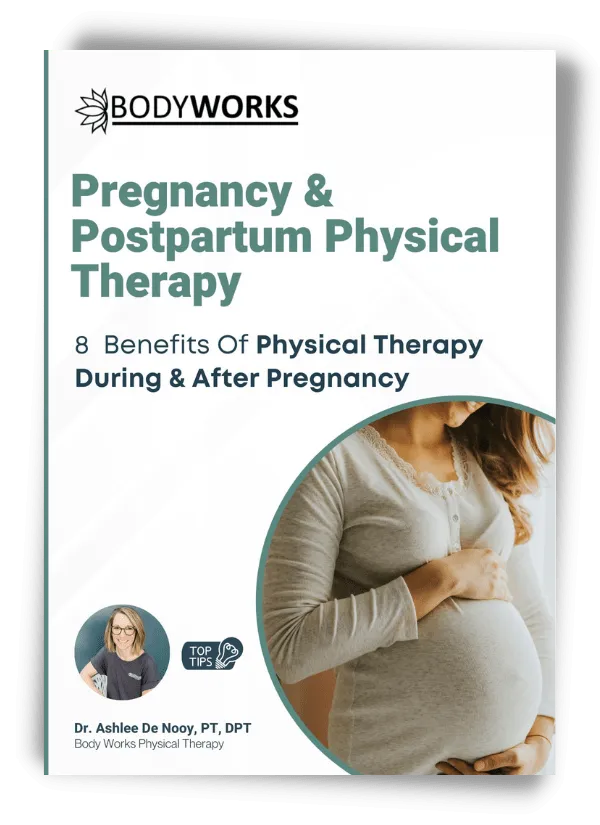
Download Your FREE Postpartum Physical Therapy Information Pack:
“8 Benefits of Physical Therapy During & After Pregnancy”
Click the button below to get your FREE Report
Does Any of This Sound Familiar?
Do you feel like your body hasn’t fully recovered after giving birth, and you’re struggling with lingering pain or discomfort?
Are you avoiding physical activities or daily tasks because of weakness or instability in your core or pelvic area?
Do you experience back pain, pelvic pain, or difficulty moving comfortably, making it harder to care for your baby or enjoy time with family?
Have you noticed issues like diastasis recti or difficulty controlling your bladder since childbirth?
Are you tired of feeling exhausted and frustrated by your body’s slow recovery, and searching for a natural way to heal and regain your strength?
If you answered YES to any of the above, you're not alone. At Body Works Women's Health & Wellness we hear stories like this every single day. It may be time to explore how specialized therapy can help you heal your diastasis and regain core strength.

Body Works Women's Health & Wellness
Greer, South Carolina
Still Feeling A Little Confused And Don't Know What To Do?
#1 Option (👍 most popular)

#2 Option - Send Us a Message

#3 Option - Book Appointment

What is Postpartum Physical Therapy and Why is it Important?
Postpartum physical therapy focuses on supporting a healthy recovery after childbirth through specialized exercises, stretches, and therapeutic techniques. It addresses common postpartum challenges like abdominal separation (diastasis recti), pelvic pain, and reduced core stability by strengthening the pelvic floor, core, and other essential muscle groups.
This therapy is vital because it helps alleviate discomfort, restores core function, improves posture, and accelerates healing after delivery. With expert guidance, postpartum physical therapy empowers new mothers to manage pain, regain strength, and confidently return to daily activities with improved mobility and comfort.

Frustrated With Your Postpartum Recovery?

Not sure who to ask?
Not sure what to do next?
Not sure who can help?
Please fill out the form below and chat with one of our team members about your right next step
The Body Works Women's Health & Wellness Postpartum Physical Therapy Program – Supporting a Strong, Confident Recovery
Step 1 - Comprehensive Evaluation and Diagnosis
Our first step is a detailed assessment of your postpartum health, birth experience, and any areas of discomfort or concern.
This includes evaluating your core strength, pelvic floor function, and overall mobility to identify areas that need support.
Our goal is to understand your unique needs to develop a personalized recovery plan just for you.
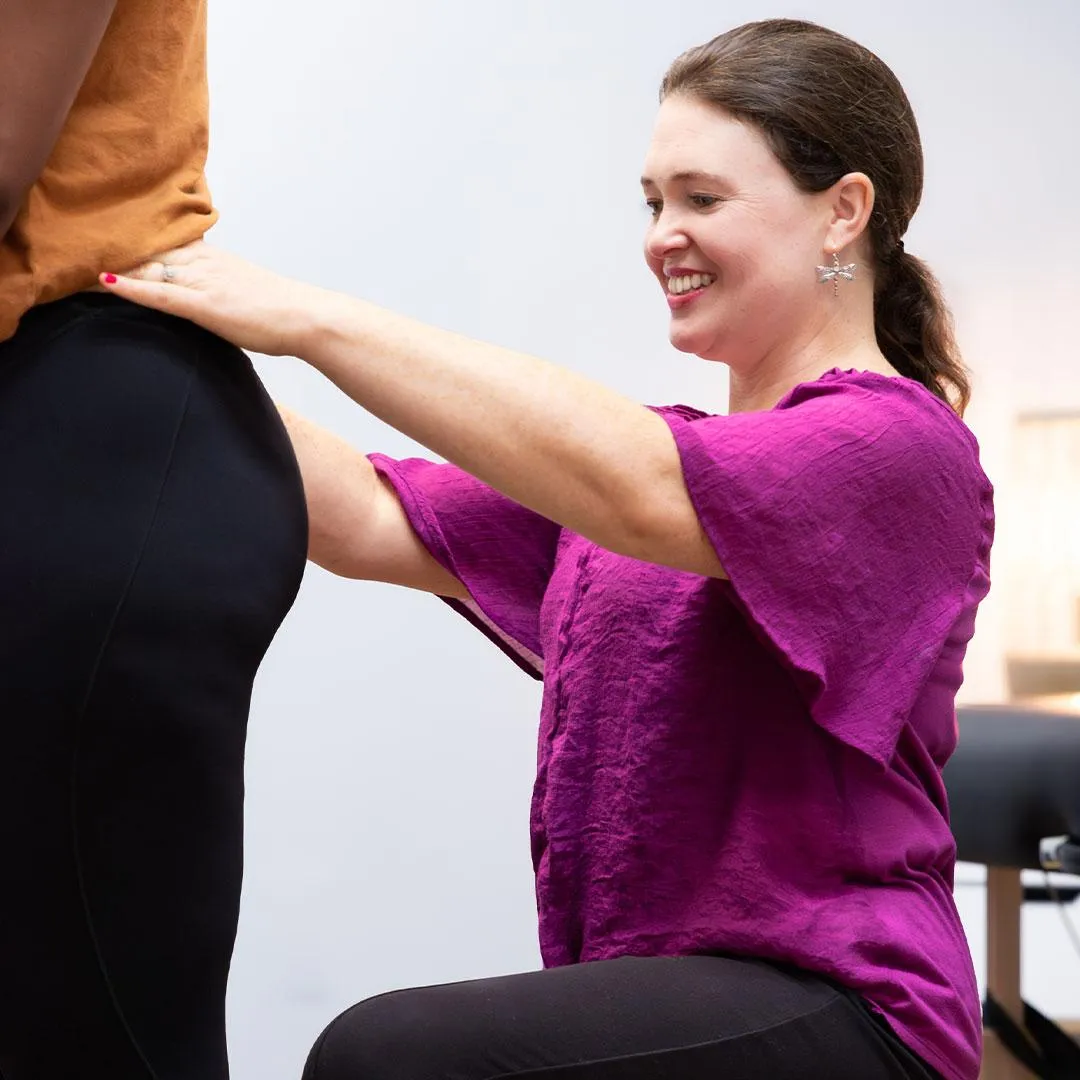
Step 2 - Customized Treatment Plan
Based on the evaluation, we create a tailored therapy plan that focuses on restoring strength, stability, and function in key muscles.
This may include a blend of gentle exercises, posture correction, core and pelvic floor strengthening, and lifestyle guidance to support a smooth, active recovery.
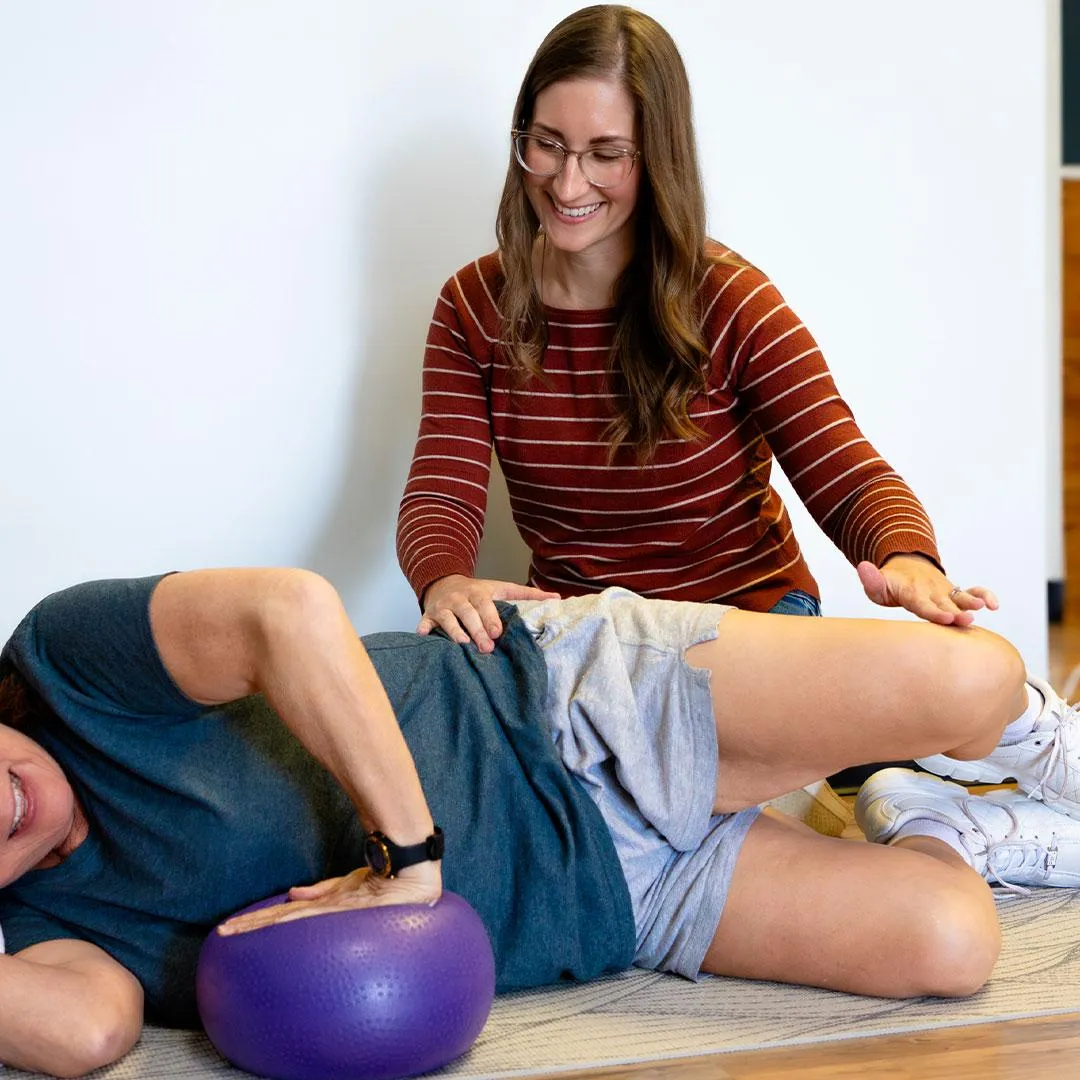
Step 3 - Long-Term Results and Prevention
Our final step is ongoing support and gradual progressions to ensure lasting comfort and strength as you return to daily life.
We provide you with practical tools and techniques to maintain core stability and mobility, helping you regain confidence and return to the activities you love with ease.
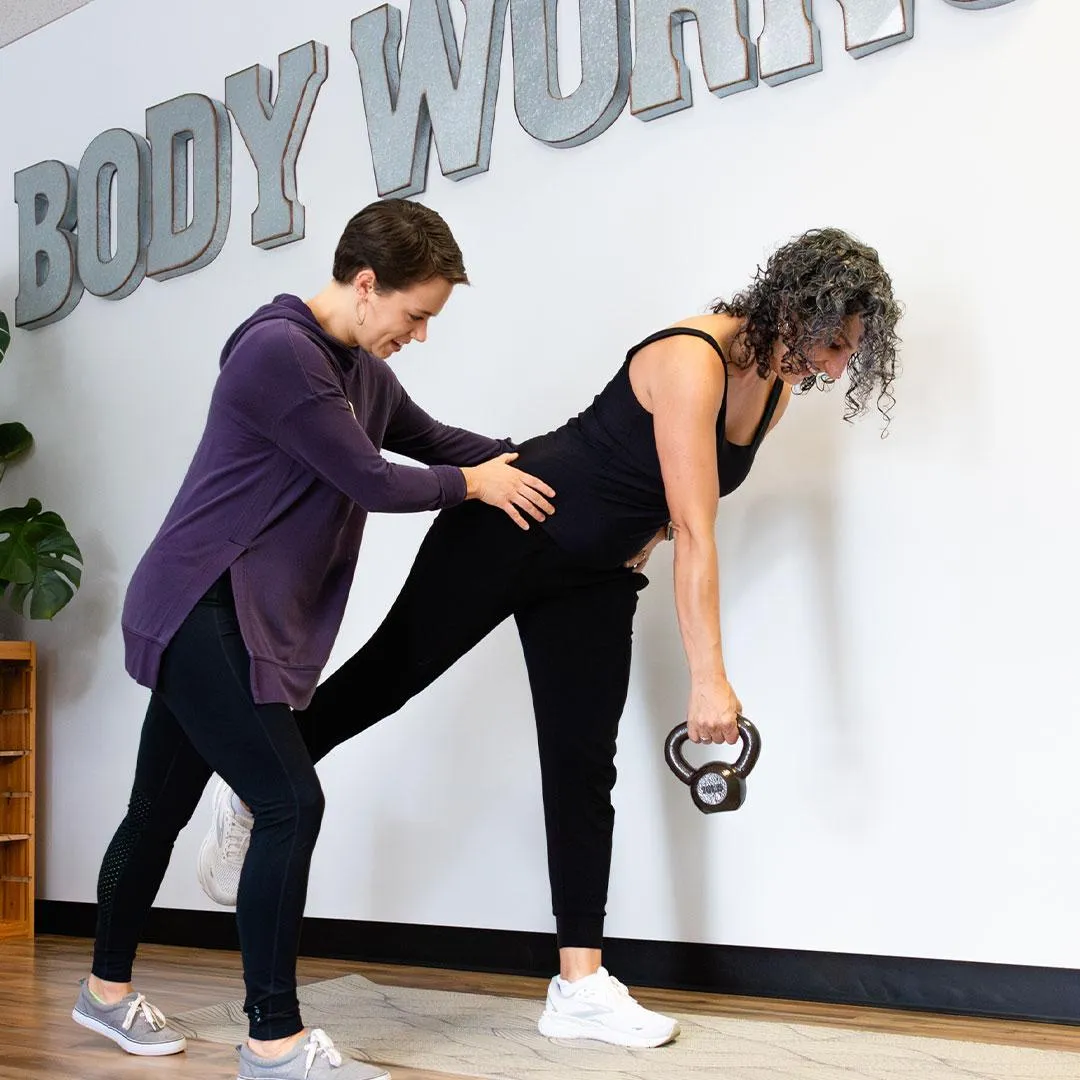
Is the Postpartum Physical Therapy Program Right for You?
Our expert team of physical therapists at Body Works Women's Health & Wellness specializes in postpartum care, helping new mothers restore strength, stability, and confidence as they recover from childbirth.
Here’s how we can support you:
We’ll assess your unique needs, pinpoint any areas of discomfort or weakness, and provide guidance on how to address them from your very first session.
Often within the first 20 minutes of your evaluation, we create a targeted plan to address core, pelvic floor, and mobility challenges, so you can begin experiencing relief right away.
By focusing on core and pelvic floor resilience, we’ll help you regain energy, support your body’s natural healing, and feel more comfortable as you return to daily activities.
Our natural approach helps you avoid unnecessary procedures, offering a gentle yet effective way to strengthen and restore your body.
We’re committed to long-term wellness, focusing on effective recovery strategies to avoid the need for repeated treatments or additional doctor visits.
We’ll guide you in restoring the comfort and flexibility impacted by pregnancy, empowering you to stay active and enjoy life with ease.
Ready to Begin? It’s your choice—continue feeling unsupported, or take the first step toward a confident, comfortable recovery. Let’s help you get back to doing what you love!
Is Postpartum Recovery Slowing You Down? Take Us Up on One of Our Free Options
Option #1 (👍 most popular)

Option #2


From Consultation to Treatment
What to Expect at Your First Visit to Body Works
We're excited to see you at your appointment! We want to make sure you feel comfortable and well-informed, so don't hesitate to ask us any questions about our treatments, our clinic, or even our payment options. Our goal is to help you get back to living your life free of pain, so let's work together to make that happen!
Discuss your story and health goals
Complete assessment
Discover your options
Start a custom treatment plan


Here's Why Over 1,000+ Women Choose Body Works Women's Health & Wellness
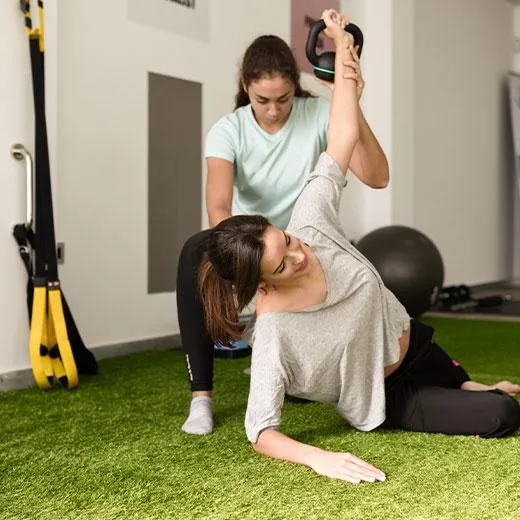
Specialised Expertise: Our clinic offers specialised care from highly-trained physical therapy in various fields like sports rehab and chronic pain management.
Comprehensive Approach: We provide holistic treatment plans combining manual therapy, exercises, and cutting-edge technology for a well-rounded approach.
Cutting-Edge Facilities: Equipped with state-of-the-art facilities and advanced equipment to support patients' recovery.
Proven Track Record: Our clinic's reputation is built on successful patient outcomes and positive feedback, fostering a supportive environment for rehabilitation.
Frequently Asked Questions About Postpartum Physical Therapy
What is postpartum physical therapy?
Postpartum physical therapy is specialized care designed to help women recover physically after childbirth. It focuses on restoring strength and function to muscles and tissues affected by pregnancy and delivery, such as the pelvic floor, abdominal muscles, and back.
Why do I need postpartum physical therapy?
Many women experience physical challenges after childbirth, including pelvic pain, incontinence, diastasis recti (separation of the abdominal muscles), and back pain. Postpartum physical therapy can help address these issues, restore core strength, improve mobility, and prevent long-term complications.
When should I start postpartum physical therapy?
You can typically start postpartum physical therapy 4-6 weeks after a vaginal birth or 6-8 weeks after a C-section, once you’ve had clearance from your healthcare provider. However, therapy can also be helpful months or even years after delivery if you are still experiencing symptoms.
What conditions can postpartum physical therapy treat?
Common conditions treated include:
- Pelvic floor dysfunction (incontinence, pelvic pain)
- Diastasis recti (abdominal separation)
- Lower back, hip, or pelvic pain
- Pain during intercourse
- Scar tissue management from C-section or episiotomy
- Postural issues from breastfeeding or carrying the baby
How long does postpartum physical therapy take?
The length of time in therapy depends on the severity of your symptoms and personal recovery goals. Most women benefit from 6-12 weeks of consistent therapy, but some may need more or fewer sessions.
Will postpartum physical therapy help with diastasis recti?
Yes, postpartum physical therapy can be very effective in treating diastasis recti. Physical therapists use targeted exercises to improve core strength and help close the gap between abdominal muscles.
Is postpartum physical therapy safe after a C-section?
Yes, physical therapy is safe and recommended after a C-section. It can help with scar tissue management, core and pelvic floor recovery, and relieving pain or discomfort. Your physical therapist will tailor your plan to ensure it’s appropriate for your stage of healing.
Can postpartum physical therapy help with urinary incontinence?
Yes, many women experience urinary leakage after childbirth due to weakened pelvic floor muscles. Postpartum physical therapy includes pelvic floor exercises to strengthen these muscles and improve bladder control.
Do I need a referral to see a postpartum physical therapist?
In many cases, you can see a physical therapist without a referral, though it depends on your location and insurance provider. It’s always a good idea to check with your insurance to understand your coverage.
What exercises are included in postpartum physical therapy?
Exercises typically include:
- Pelvic floor strengthening (Kegel exercises)
- Core stabilization and strengthening
- Gentle stretches to improve mobility
- Postural exercises to correct alignment
- Breathing techniques to support muscle recovery
- 11. Can I do postpartum physical therapy while breastfeeding?
Yes, you can safely participate in physical therapy while breastfeeding. In fact, it can help alleviate some of the strain and discomfort that breastfeeding might cause, such as upper back and shoulder pain.
Can physical therapy help with postpartum depression?
While postpartum physical therapy focuses on physical recovery, it can indirectly improve emotional well-being. The physical activity and body awareness fostered in therapy can help reduce stress, improve mood, and provide a sense of control over your recovery, which may help manage postpartum depression or anxiety.
What should I wear to postpartum physical therapy sessions?
Wear comfortable clothing that allows for movement, such as leggings, shorts, and a loose-fitting top. The therapist may need to assess areas like your abdomen or pelvic floor, so it's helpful to wear clothing that's easy to adjust as needed.
Does postpartum physical therapy hurt?
Therapy shouldn't be painful, though some exercises may feel challenging or uncomfortable, especially if you’re dealing with scar tissue or muscle weakness. Your therapist will ensure that the exercises are safe and appropriate for your recovery level.
Please note that these FAQs provide general information and should not replace personalised advice from a qualified healthcare professional. It is important to consult with a trusted physical therapist to assess your individual case and determine the most suitable treatment plan for your Diastasis Rectus Abdominis.
Frustrated With Your Postpartum Recovery?

Not sure who to ask?
Not sure what to do next?
Not sure who can help?
Please fill out the form below and chat with one of our team members about your right next step

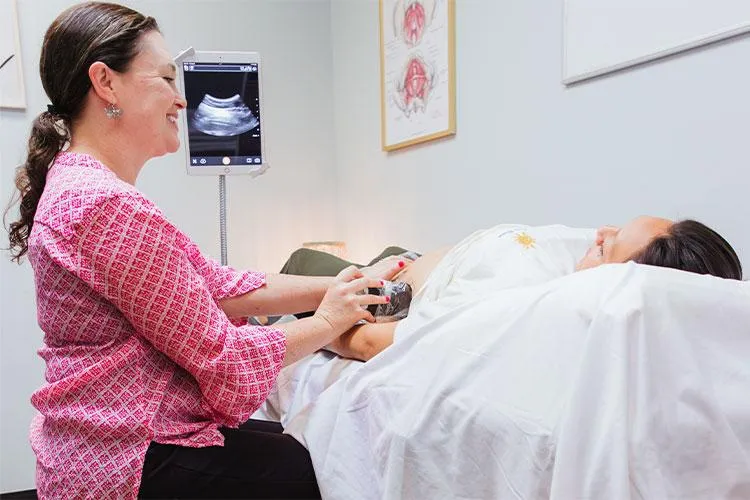
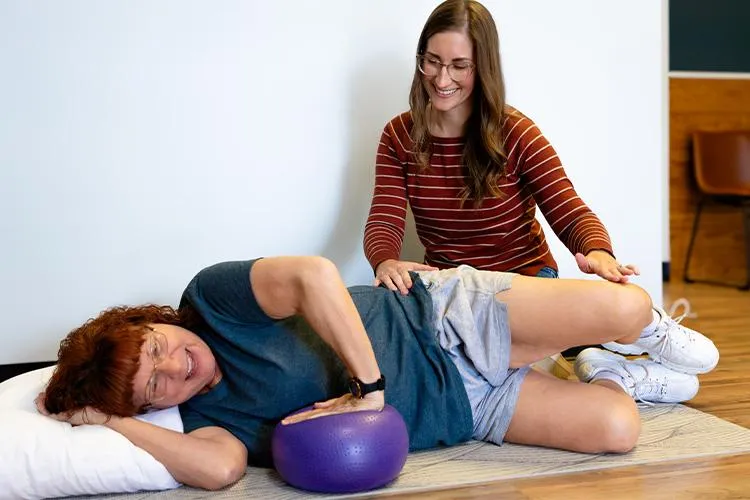
Where To Find Body Works Women's Health & Wellness

If you have any questions before scheduling an appointment or for general inquiries, please use the contact us button below. Our team will promptly reach out to assist you.
Opening Hours
Monday: 7:30am -6pm
Tuesday: 7:30am-4pm
Wednesday: 8am -5:30pm
Thursday: 7:30am - 3pm
Friday: 7:30am - 3pm
Saturday: Closed
Sunday: Closed

